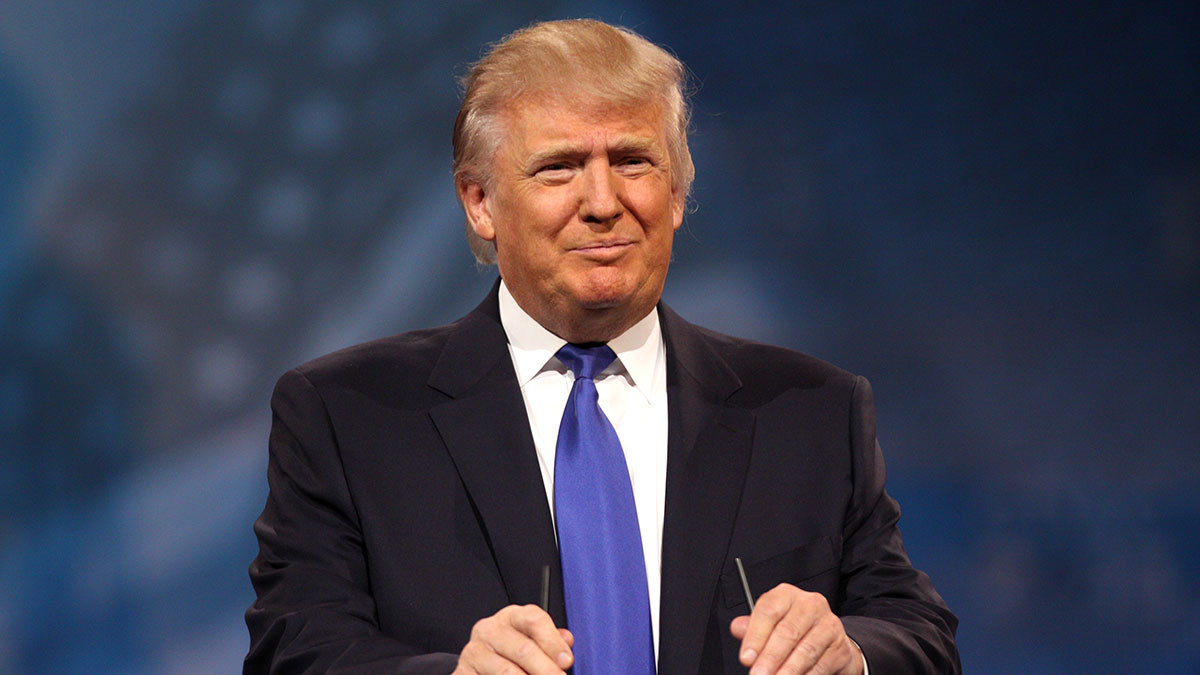Popularity of Trump/Sanders indicates economic discontent
 Supplied — Gage Skidmore
Supplied — Gage SkidmoreA Jan. 17 report released by Oxfam said that the wealthiest 62 individuals in the world — half of them American — now owned as much wealth as half of the world’s population, with their wealth increasing 44 per cent from 2010. This report came the day the US Democratic Party held its fourth Presidential debate, a debate whose topics included trying to tackle the rising income inequality on American soil.
The consequences of this rising economic inequality has been political extremism and a distrust of established, traditional candidates. The reason for the distrust among voters in each party is that the average American feels ignored. While the wealthiest Americans have increased their wealth by 44 per cent since 2010, median household income in America has decreased by almost 4,000 since the 2008 according to US Federal statistics. These Americans have not recovered from the recession, and they are now desperately searching for a presidential nominee who will represent their interests and not just the interest of the wealthiest citizens. In this search they’ve bypassed the conventional candidates and have zeroed in on candidates who are on the ends of the political spectrum — Democratic candidate Bernie Sanders and Republican candidate Donald Trump.
Although they are on opposite sides of the political spectrum, Trump and Sanders cater to the same category of voter in their respective parties while staying true their own party ideals. They connect with voters who want drastic change, who are worried about their own jobs and economic situations.
Sanders promises to look out to this group of economically insecure Americans with wealth redistributive policies such as free tuition at public universities, universal health care and an increase in the social safety net. Trump does this by promising to build a wall to keep Mexicans out, and by not allowing refugees to enter the country. 50 per cent of Trump’s supporters have a high school diploma or less according to RealClear Politics, which means that a good portion are employed in relatively lower skilled industries and are most vulnerable to job losses either via a recession or by cheaper labour. This distinction is important in explaining his popularity because this group of Americans see his promises to build a wall on the Mexican border and bar refugees not as xenophobic and bigoted, but as a commitment to them that he will do whatever it takes to keep their low skilled and easier to replace jobs in America for Americans.
Sanders’ success, meanwhile, is exceedingly unprecedented not only because of who he’s facing, but because of his political identification. Sanders is a proud democratic socialist, an identification that would have been political suicide just eight years ago. His biggest rival is a former Secretary of State who was also the wife of an extremely popular President, and who has been the frontrunner for the nomination since Obama was elected in 2008. By all accounts, Clinton should be blowing him out of the water, but she is not. Democratic voters, it seems, see her ties to Wall Street and the wealthiest Americans as a sign that their economic situations may not change much under her. They want drastic change. The fact that he has gotten this far being a socialist in the most fiercely capitalistic country in the world against an extraordinarily experienced candidate is evidence of the aforementioned political extremism.
The popularity of Trump and Sanders also represents the growing disconnect between the average American and party elites, and are reactions by the voters who feel that their parties are controlled by the rich. Candidates with large and wealthy donor bases are not seeing anywhere near the success they usually would see in other elections. Jeb Bush has raised the most campaign money at US $128 million and is only polling at 5.3 per cent according to Huffington Post, as opposed to Trump’s 37 per cent. Ted Cruz is Trump’s closest competitor and is polling at 17 per cent, with US $64 million raised. Americans are now seemingly equating large campaign funds with being in bed with the richest Americans. With the wealthiest donors and political action groups funding Trump’s rivals, and with popular conservative media such as the famed National Review denouncing Trump, conservative voters seem to be sticking it to their wealthy party members for leaving them out of the post-recession economic recovery.
The lack of popularity for the more established, donor-approved candidates serves to remind the wealthiest party members and donors that if they want their candidate to win the election, then they must prioritize the wealth and economic well-being of the average American and not just their own. If they don’t, then they might see a presidential race between an ultra-conservative, uber-wealthy xenophobe and an eccentric socialist in a few months’ time.




